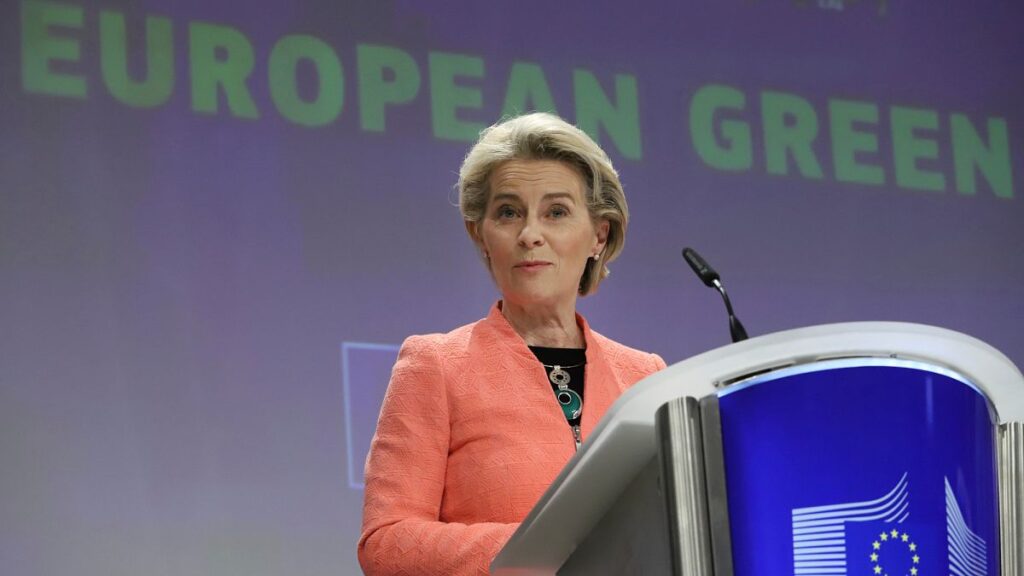Published on •Updated
The European Parliament’s political leaders agreed on Thursday to form a working group within the Committee on Budgetary Control (CONT) to scrutinise how the European Commission funds non-governmental organisations.
The group will include 13 MEPs chaired by German lawmaker Niclas Herbst with two co-rapporteurs, from the centre-right European People’s Party and the right wing European Conservatives and Reformists, Parliament sources told Euronews.
The decision came after a spat over the financing of environmental NGOs by the European Commission, accused by the German newspaper Welt Am Sonntag of having secretly paid up to €700,000 to promote the bloc’s climate policy. The Commission denied that it had signed “secret contracts” and claims it exercises a high degree of transparency in providing funding to NGOs.
The right and far-right groups of the European Parliament have been pushing to set up an inquiry committee to clarify the issue, but their request was voted down during the Conference of Presidents (CoP), the weekly meeting of the Parliament’s political groups’ leaders.
Instead, the CoP approved a working group, proposed by the European People’s Party (EPP), the largest group in the Parliament, and ultimately backed also by the European Conservatives and Reformists (ECR) and Patriots for Europe (PfE).
All the other groups of the so-called “pro-european majority” (Socialists, liberals and Greens) were against both the inquiry committee and the working group, but on the latter they were outvoted by the so-called ‘Venezuela majority’, an alliance in the chamber which sees the EPP cooperating with other right-wing groups.
Working groups are ad hoc structures that enable European Parliament’s committees to follow up on the implementation of legislation in place, conduct investigations and studies on very specific and time-defined issues.
This one has a six-month mandate, after which it will put out a final report and could suggest changes to the rules.
“The working group will go through every funding contract [between Commission and NGO] to verify if there were any interferences, or if it was foreseen that a part of the performance included in the funding was precisely aimed at lobbying the MEPs,” said ECR lawmaker Carlo Fidanza, during a press conference after the CoP.
“It is a less invasive instrument compared to an inquiry committee, but we are still satisfied,” he added.
According to internal sources of the EPP, a working group was preferred to an inquiry committee as the former is more focused on scrutinising the future behaviour of the Commission, rather than focusing on what went wrong historically.
The CoP also decided to drop negotiations on the “Green claims directive”, a law designed by the European Commission to protect consumers from greenwashing by requiring companies to substantiate their green claims.
The Parliament had adopted its position on the directive in March 2024 and was supposed to negotiate the final text with the member states, but is now asking the Commission to withdraw it.
This decision was also supported by the European People’s Party with the far right groups.
Read the full article here

